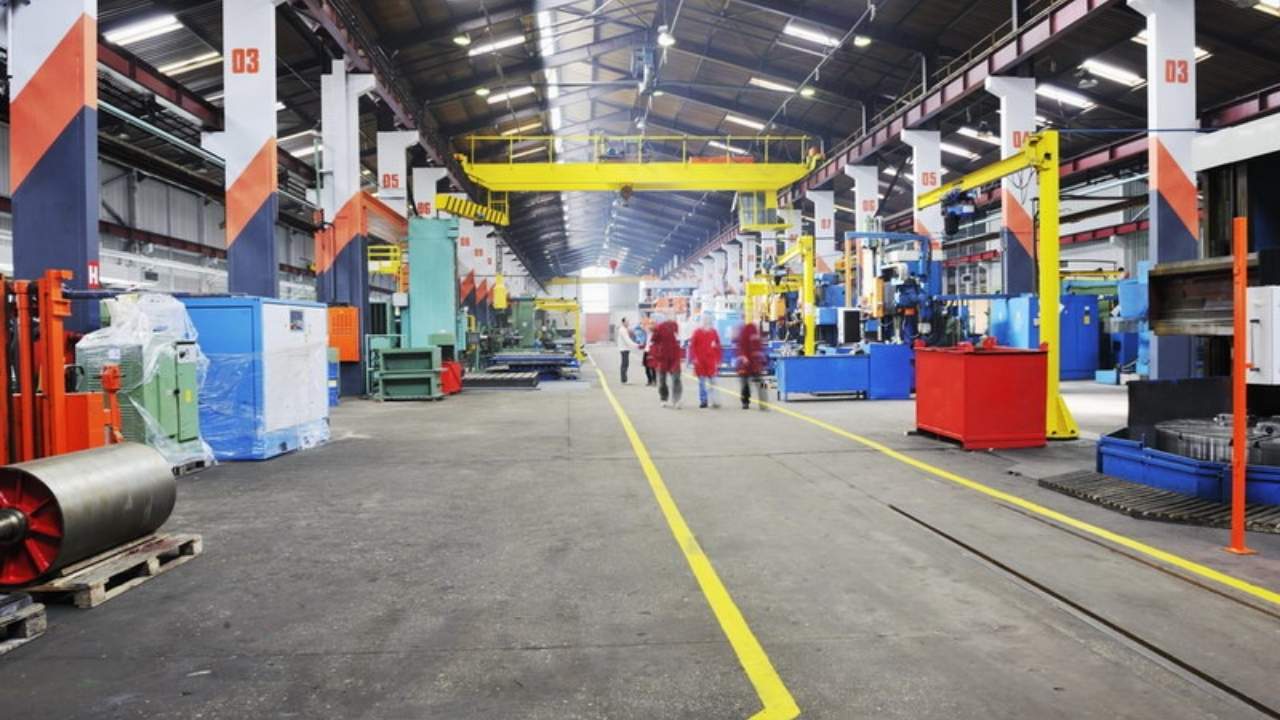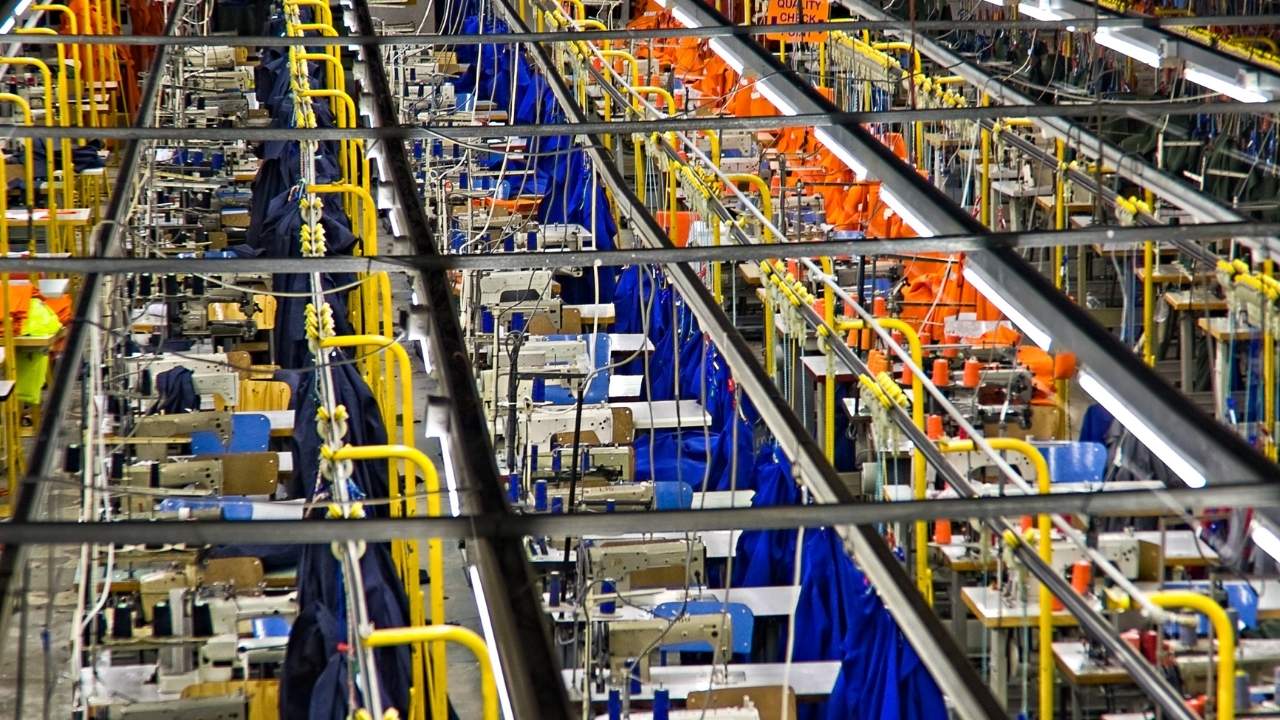As a Shopify business expands, the native order fulfillment and inventory tools may struggle to handle increasingly complex fulfillment operations smoothly.
While Shopify has enabled many entrepreneurs to easily create successful online stores, its core platform focuses primarily on sales and marketing functions. Integrating an Enterprise Resource Planning (ERP) system with Shopify can optimize order management by unifying operations, automating workflows, and enhancing inventory control. With an ERP system in place, businesses can continue optimizing order fulfillment as sales volumes increase over time, without facing the scaling limitations of using Shopify alone for advanced order management.
What is Order Fulfillment?
Order fulfillment is essential for businesses as it marks the completion of a sales transaction, whether it’s with other businesses (B2B) or directly with consumers (B2C). Revenue is generated through the sale of products and services, but the process isn’t finalized until the customer receives their purchased items. For instance, Cleveland Golf experienced an 81.5% increase in on-time shipments through effective Order Management.
This process occurs in distribution centers, factories, or stores and typically involves various systems such as inventory management, supply chain management, order processing, quality control, and customer service. These systems enable the reporting of issues and facilitate product exchanges or returns.
While the concept may seem straightforward, its intricacies are often overlooked.
Why is Shopify Order Management important?
Whether online, in brick-and-mortar stores, or through direct sellers, customers seek a seamless experience facilitating swift order placement and hassle-free returns. With consumers more informed and empowered than ever, the importance of an ERP system with an omnichannel order management feature cannot be overstated—It’s crucial for keeping customers happy, boosting profits, and safeguarding brand reputation.
To cater to customers’ preferred buying methods, businesses must provide a seamless and convenient customer journey. Thus, simplifying the order capture process, configuring orders, ensuring inventory visibility, scheduling fulfillment, and offering flexible shipping and return options become paramount objectives for both B2B and B2C enterprises. The ultimate aim is to ensure customers receive their orders promptly and completely, all while minimizing costs.
Traditional order management systems (OMS), conceived long before the advent of omnichannel commerce, struggle to keep pace with the demands of modern retail. These legacy systems operate in isolated silos, tethering individual channels to single inventory sources. Consequently, without comprehensive inventory visibility across the supply chain, merchants grapple with uncertainty regarding available stock and its whereabouts. This lack of visibility poses challenges in fulfilling delivery commitments and optimizing order routing to the most efficient fulfillment centers.
How can Shopify Businesses Optimize their order fulfillment Process?
-
Optimized Order Routing
An ERP system can intelligently route incoming Shopify orders to the most suitable warehouse or third-party logistics (3PL) provider based on product availability, proximity to the customer, and shipping costs. This facilitates dynamic “wave planning” – releasing orders in efficient batches for fulfillment based on predefined rules. Automated routing reduces manual effort and accelerates order processing.
-
Real-Time Shipping Rates
By integrating shipping APIs from USPS, UPS, FedEx, and other carriers, an ERP system can automatically fetch real-time shipping rates during checkout on the Shopify storefront. This allows customers to select their preferred shipping option while enabling retailers to contain costs.
-
Streamlined Product Receiving
Barcode scanning and ERP integration introduce scan-based receiving for faster product intake. Warehouse staff can quickly scan barcodes on incoming inventory and pallets for instant system updates. This accelerates putaway so products are available for orders sooner.
-
Minimized Picking Errors
Enhanced ERP linkage enables barcode labeling during product storage. Compatible scanners then allow pickers to accurately select inventory for orders via visual verification – minimizing errors. Advanced batching based on product proximity further optimizes picking routes.
-
Unified Multi-Source Inventory
An ERP system readily unifies inventory distributed across multiple warehouses, 3PL locations, and retail stores onto a single dashboard – providing enterprise-wide visibility and coordination. This prevents overselling by knowing the exact product quantities at each location.
-
Promising Accurate Delivery
Real-time inventory synchronization across the distribution network allows ERP systems to determine product availability during order capture on Shopify. This enables retailers to promise highly accurate delivery timelines based on actual fulfillment capability analysis.
-
Automated Drop Shipping
For drop-shipped items, ERP assimilation can completely automate order routing to manufacturers or distributors once customers purchase on Shopify. Suppliers instantly receive electronic purchase orders for demand-driven fulfillment without manual tracking.
-
Compliant Shipping Labels
An integrated ERP solution can auto-generate packing slips, shipping labels and documents needed for order processing from the order data captured at checkout. This accelerates fulfillment while ensuring accuracy and regulatory compliance based on carrier specifications.
-
Built-In Carrier Integration
Leading ERP platforms like Versa come pre-integrated with shipping carriers like UPS, FedEx, and USPS with the ability to print labels compliant with their requirements. This prevents shipment rejections due to small errors and accelerates courier pickup.
-
Flexible 3PL Scalability
High-growth merchants can leverage ERP capabilities to rapidly onboard third-party logistics (3PL) partners and expand fulfillment capacity on demand. Streamlined 3PL integration enables inventory and order visibility across outsourced locations.
-
Optimized Returns Management
An ERP solution can completely automate returns initiation when the customer ships them back. Tracking status at each step – receipt, inspection, disposal, etc. also becomes simpler through system logs. Configurable reasons help categorize why customers return goods for proper accounting.
-
Intelligent Restocking
Once returned, automated ERP-based workflows can determine if inventory is reusable or requires refunding/replacement. Goods are systematically restocked while partial refunds or exchanges can be instantly triggered based on codified return condition rules.
-
Minimized Recall Impact
For serialized products, ERPs give granular traceability into which customer purchased what unit. This precisely identifies affected customers during product recalls to minimize financial risks and reputation damage.
Unified Commerce Growth
While Shopify provides best-in-class transaction capture, ERP assimilation unlocks the backend visibility and coordination vital for scaling successfully.
Without ERP unification, critical business limitations persist:
- Data and task silos constrain decision synchronization across departments.
- Key metrics provide limited cross-functional visibility to optimize operations, merchandising, and targeting.
- Redundant manual workflows across billing, shipping, inventory, and accounting tools inflate costs.
- No holistic order visibility across channels hampers customer service agility.
- Process and data fragmentation eventually throttles growth velocity.
Connecting Shopify to an ERP system via pre-built connectors overcomes these limitations:
- Assimilating transactions into integrated inventory, finance, CRM and supply chain processes connects front and back offices.
- Unified data insights through embedded analytics empower informed, synchronized decisions across functions.
- Automated order workflows update related downstream tasks across departments minimizing redundancies.
- Single pane order tracking across channels with flexible customization assists agents in delivering personalized, omnichannel support.
- Built-in scalability and enterprise-grade architecture help brands continuously expand without transactional bottlenecks.
The Shopify-ERP alliance enables retailers to deliver frictionless customer experiences through front-end commerce agility while optimizing back-end operations via process unity and data harmonization. This symbiotic approach powers data-driven, synchronized commerce growth.
Streamline Shopify Order Fulfillment with Versa Cloud ERP
Shopify provides a digital commerce platform for selling online across diverse channels. However, fully optimizing order fulfillment and customer support requires assimilating Shopify data into integrated back-office systems like Versa Cloud ERP.
Versa Cloud ERP and Shopify integration empower high-growth brands to deliver exceptional customer experiences via unified commerce. Leveraging pre-built connectors, Versa assimilates transactions into integrated back-office processes across inventory, finance, supply chain, and more. This enables data-driven omnichannel order orchestration, optimized workflows, and enterprise-wide visibility to scale your business with velocity. To learn more about how a customized solution by Versa Cloud ERP can accelerate your e-commerce growth, schedule a free personalized demo tailored to your unique requirements.
Effectively manage your financials, accounting, inventory, production, warehouse management, Shopify Store, and order fulfillment workflows with our award-winning ERP.
Let Versa Cloud Erp’s do the heavy lifting for you.
Empower your business with the knowledge to navigate the realm of an Integrated ERP solution. Gain insights, streamline processes, and propel your accounting management to new heights with this comprehensive guide.
With Versa Cloud ERP’s Implementation guide learn how a business can ensure a successful ERP Solution Implementation. Navigate the complexities of implementation with confidence!
A Small Business in the modern day with Omnichannel Retail is complex and requires resources to deliver on its goals and achieve its full potential. To create a small business success story business owners need an ERP Solution that grows with them.
[widget id=”custom_html-40″]
[widget id=”custom_html-42″]
[widget id=”custom_html-30″]
Do Business on the Move!
Make your businesses hassle-free and cut the heavyweights sign up for the Versa Cloud ERP today!!
Join our Versa Community and be Future-ready with us.
[widget id=”custom_html-20″]






